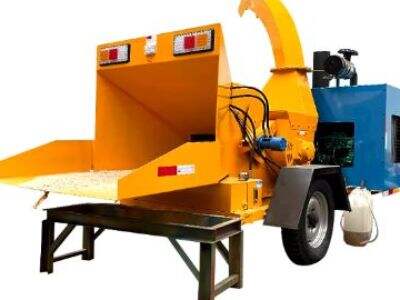Are you looking to clean up your garden or backyard? If so, maybe you should invest in a wood chipper. Wood chippers are very useful for chopping tree branches and bushes into small pieces. That makes it easier to dispose of the refuse. But while it comes to selecting a wood chipper that suits your requirements, you could be questioning whether to settle on one electric or gas one. In this guide, we would be sharing some key tips to ease your decision in it.
Comparing Efficacy and Energy
One of the first things to consider when selecting a wood chipper is how powerful it is. These gas-powered ones are quite powerful chippers that run on gasoline. That means it should easily plow larger branches and the like. Gas chippers are faster and more powerful than electric ones, and well suited for larger jobs like landscaping or clearing large amounts of material at once.
An electric chipper, on the other hand, is powered by electricity. This makes it not as powerful as a gas chipper. That being said, it should have no problem with small branches, twigs and leaves. Electric wood chippers are generally better for smaller garden projects, or lighter work. If you have a little garden and stack small things for chipping, an electric chipper would work for you perfectly.
Cost and environmental factors to consider
As you consider the different types of wood chippers available, you should also take into account what each type costs and its environmental impact. In general, the gas chippers carry a higher price than their electric counterparts. They tend to run about $100 to $200 more. Also, each time you rent out a gas chipper, you need to use gasoline, which adds up to the overall costs. So, gas chippers become less attractive if you are on a budget.
Also the best option for the environment is an electric wood chipper. They do not spew toxic gases, such as carbon dioxide, into the atmosphere, which keeps our planet healthier. Moreover, electric chippers are quieter when they work. This means they generate less noise for you while you are working. These benefits also make electric chippers wallet-friendly and kind to the environment.
Which Is More Portable?
Ease of transporting the chipper from point A to point B is another major factor to consider. Most job sites demand that you move the chipper from spot to spot. Electric wood chippers tend to be smaller and lighter than gas chippers. That makes them incredibly portable. Depending on the brand and model, they typically weigh between 20 to 50 pounds. This lightweight design is ideal for those with small yards who need to move the chipper around frequently.
Gas wood chippers, on the other hand, are generally heavier and bulkier. They range in weight from 80 to 200 pounds, depending on the size and the power of the engine. This weight also makes them better for larger jobs but more difficult to move around. And if you have a specific place to work or tend to accumulate larger branches, a gas chipper may be a better choice.
Maintenance Requirements and Safety Features
When dealing with a wood chipper working safely is very important. Gas and electric safety features: Chippers, both gas and electric, come with built-in safety devices to help protect you from injury. Electric wood chippers, for example, usually have an automatic shut-off convenience and starter protection. Such safety measures also avoid injury in the process of your chipping project. Electric chippers also tend to require less maintenance as well as have fewer engine-related issues, leading to easier long-term care.
Gas wood chippers also have safety features, including a kill switch, safety glasses and a safety shield. Certain models even come with a lockout feature to prevent inadvertent engine activation. Gas chippers overall have a higher maintenance, as we would all like to keep the engine running smooth and steady. That means you’ll have to spend more time checking on and caring for them to ensure they’re safe and effective.
What Types of Wood Chippers are Available?
Choosing the best wood chipper that works for your need is a matter of understanding the nature of your project, your budget, and individual taste. If you're tackling a smaller project or have a smaller yard, an electric chipper is probably a better option for the work you need to do. They are environmentally friendly, require low maintenance, and can help you save money in the long run.
But if you have a larger project that needs more power and a bigger space to work in, then a gas wood chipper could be the better option. Okay, so these are a little pricier and not as environmentally friendly, but they give you the power to deal with bigger debris and heavier yard work.
A quote from Kesen, a garden tools manufacturer: "We believe all these factors should be taken into consideration to decide between an electric vs gas chipper." Consider things like cost, power, portability, environmental friendliness, safety features, and maintenance requirements to find the best chipper for your unique project needs. But no matter which you choose, your safety is key. As you work with your chipper, be sure to follow all safety guidelines so that you are able to work safely as well as other people.

